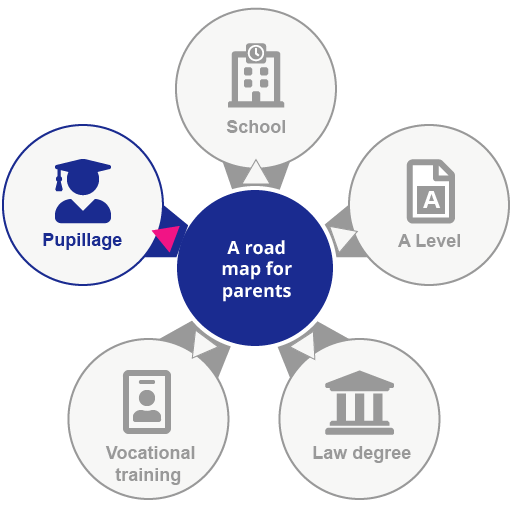Pupillage
Once students pass the vocational stage of training, the final stage to becoming a barrister involves a period of regulated training known as a ‘pupillage’ during which the student is known as a ‘pupil’. This is work-based learning and consists of practical training under the supervision of a practising barrister. It is divided into two parts, each of which usually lasts six months.
The first part is a period when pupils do not practise as a barrister – rather, they will shadow a ‘pupil supervisor’ and learn from them. It is a bit like an apprenticeship. In the second six-month period, often pupils will be allowed to undertake straightforward cases of their own, under close supervision, while continuing to shadow their pupil supervisor.
Income awards
During the pupillage stage, there is a minimum income award to pupils of £18,866 per annum for pupillages which take place in London, and £16,322 per annum for pupillages outside of London (2020 figures). The minimum award may not cover all the financial needs of a pupil, however, many pupillages are funded to a higher level than the minimum award.
Getting to grips with a new role and the lived reality of working in the court system can be difficult for pupils and early career barristers. Pupils need to quickly develop new skills and knowledge, but at the same time they may be working long hours on difficult cases or seeing or hearing evidence which is traumatic. Pupils may require support at this time. Once qualified, early career barristers may also require financial and emotional support as they seek to establish their practices.
Sixes
| It is recommended that you hold down the Crtl button on your keyboard and click on the link below to open it in a new window. |
For more information on Pupillage, watch this video from The Lawyer Portal [Tip: hold Ctrl and click a link to open it in a new tab. (Hide tip)] , which describes how the final year is split into 'sixes'.
The vocational stage of training

